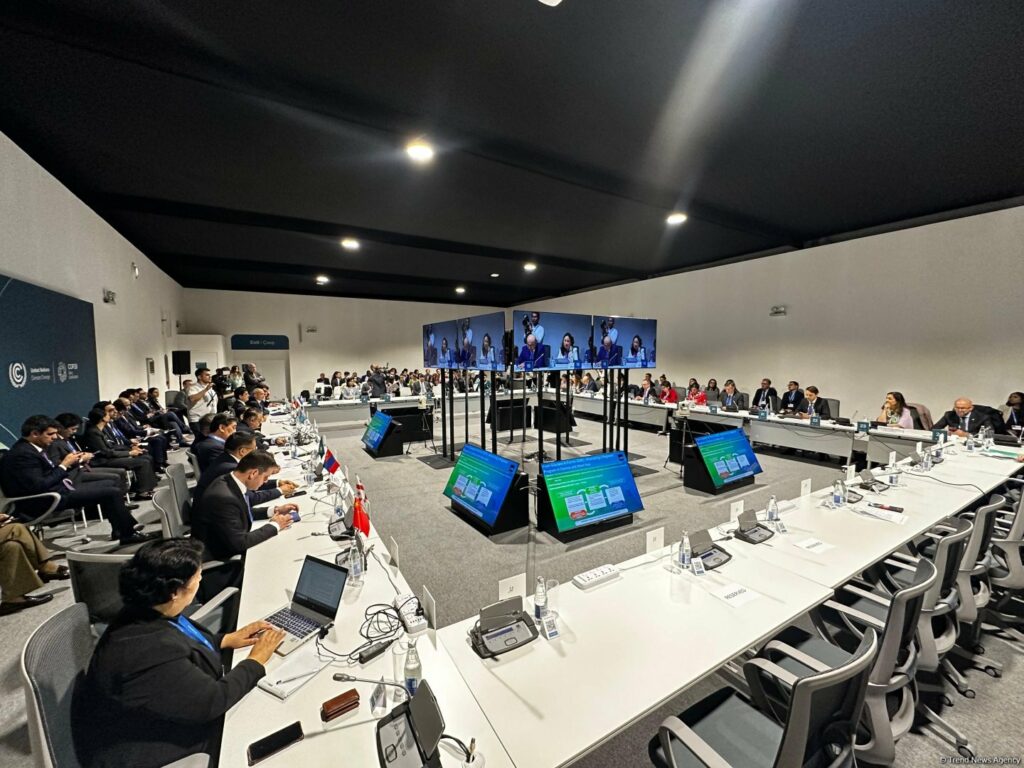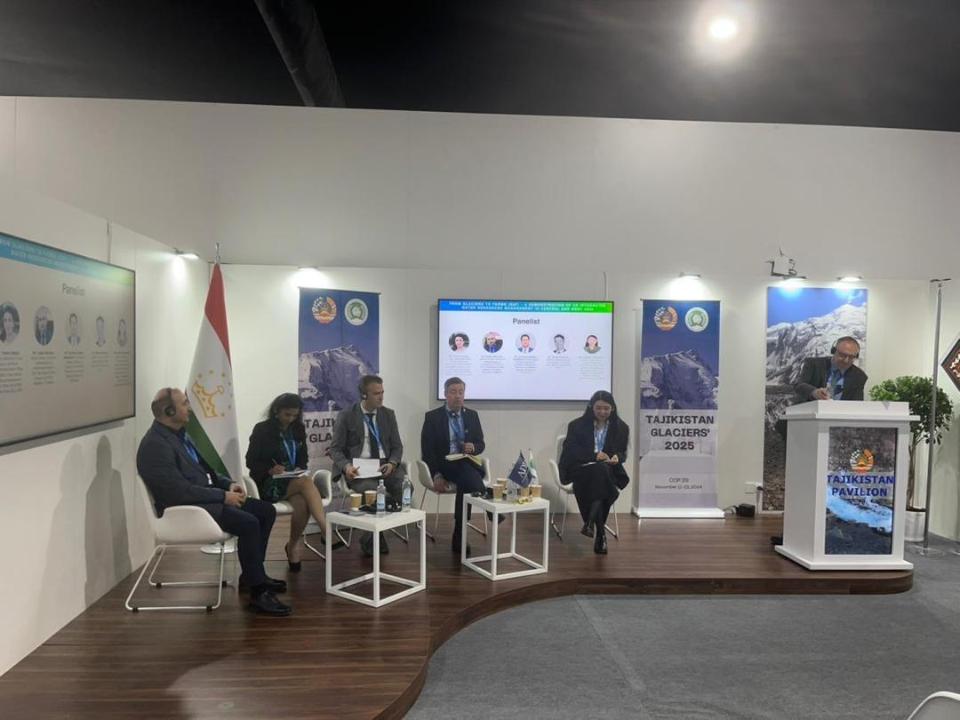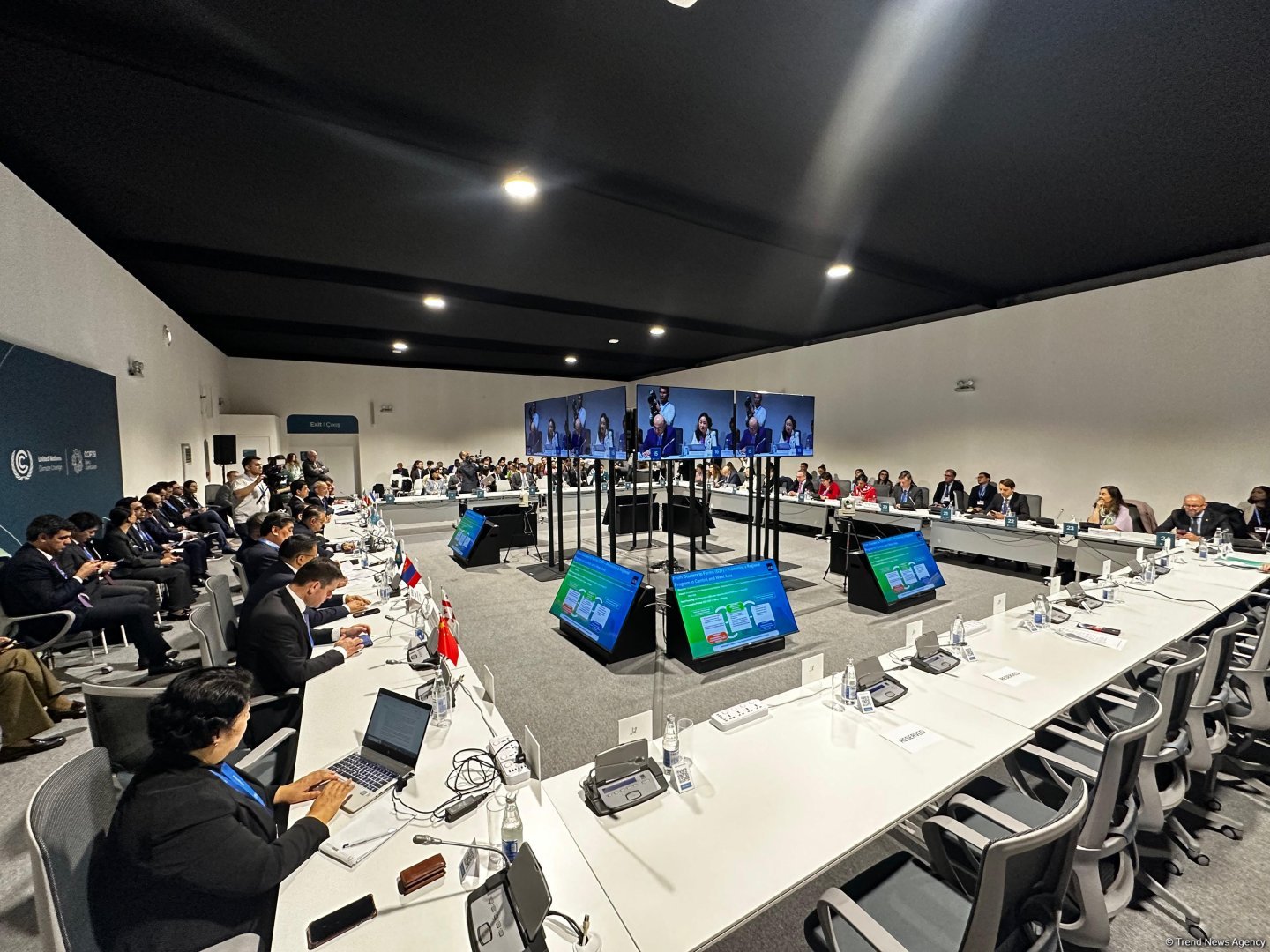BAKU /Trend/ – A panel discussion on “Climate Change and Regional Cooperation to Prevent Glacier Melting in Central and Western Asia” was held within the framework of COP29, Trend reports .
ADB and the Green Climate Fund will sign a declaration of partnership on climate change, glaciers and cross-border cooperation for Central and West Asia, Asian Development Bank (ADB) President Masatsugu Asakawa said.

“Today, we take an important step forward with the launch of the Glacier to Farm (G2F) programme. Through G2F, we will scale up support for glacier conservation, sustainable water management and social protection for vulnerable communities, mobilising US$3.5 billion over seven years to protect water and agriculture. This initiative will strengthen resilience and adaptation for people in Central and West Asia who depend on glacier-fed rivers, directly benefiting millions and indirectly supporting hundreds of millions of people,” he said.
And the Minister of Ecology and Natural Resources of Azerbaijan, President of COP29 Mukhtar Babayev noted that Azerbaijan, in solidarity with our regional partners, once again confirms its commitment to the preservation of glaciers and sustainable management of water resources.
“I am grateful to our co-organizers, the Asian Development Bank and the Green Climate Fund, for bringing us together to address one of the most pressing challenges of our time – melting glaciers and its widespread impacts. This gathering demonstrates our shared determination to address climate vulnerabilities in the Caucasus and Central Asia regions,” he said.
The region, which stretches from the glaciers of the Greater Caucasus to vast agricultural plains, faces increasing risks from glacier retreat, he said. These vital freshwater reserves are rapidly depleting, leading to water shortages, desertification and reduced agricultural productivity, with profound impacts on livelihoods and ecosystems.

Pakistani Finance Minister Muhammad Aurangzeb, in turn, said that Pakistan is projected to become a country with a high level of water scarcity by 2040.
This could have a severe impact on agriculture, which employs a large part of the country’s workforce and contributes about 24% to the country’s GDP, he said. Rapid melting of glaciers will also impact global and regional food security, as Pakistan is among the world’s leading rice producers and exporters.
“As a glacier-dependent country, Pakistan fully supports the Glacier to Farm (G2F) initiative. Pakistan is one of the most vulnerable countries to climate change despite contributing less than 1% to global emissions. We recognise the need to adopt innovative and sustainable solutions to protect our water resources and agriculture as Pakistan is one of the countries with the largest glacier area in the world,” the minister said.
https://www.trend.az/business/3969914.html
https://www.gov.kz/memleket/entities/ecogeo/press/news/details/887665?lang=ru

